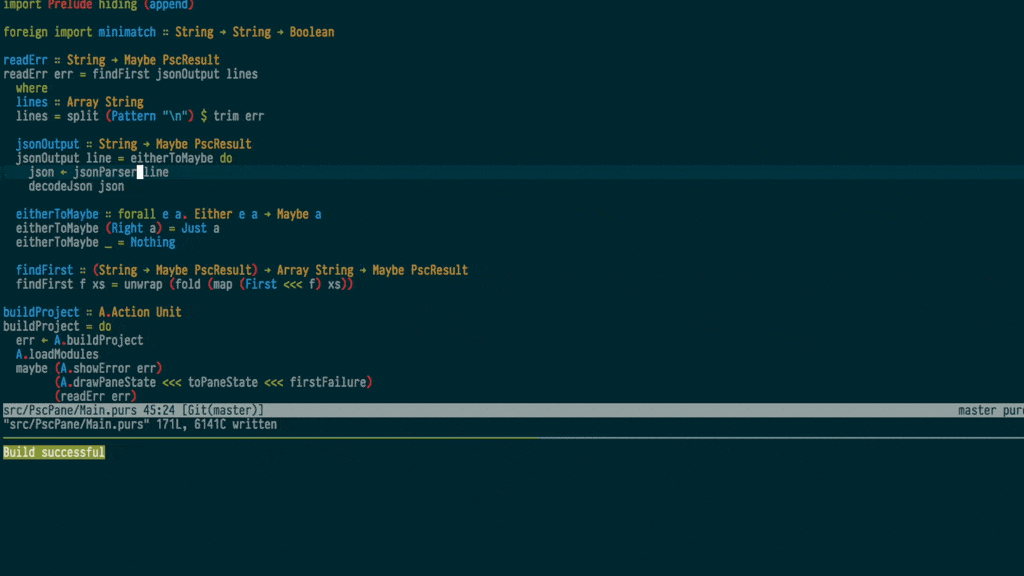psc-pane
v3.0.0
Published
Auto reloading PureScript compiler
Downloads
47
Readme
psc-pane
Auto reloading compiler for PureScript inspired by ghcid.
psc-pane helps you get quick feedback on your PureScript code by watching
your source files for changes. It will
- try to first compile the file that changed with psc-ide and show the first error if any. If there are no errors it will
- run a full build using
pscand show the first error if any. If there are no errors it will then - (optionally) run your test suite.
psc-pane is designed to be run in a terminal multiplexer like tmux side-by-side
with your editor, or in a normal terminal window. You can resize the terminal
window and the output is reformatted on the fly to fit the new height of the
window.

Installation
npm install psc-pane -gUsage
If you have a pulp-style project directory
structure you can run psc-pane with no arguments
psc-paneThis will compile your project with psc and then start listening for changes
to files in src/. It will start a psc-ide-server for you in some port
between 4242-4245 and compile any file you save with psc-ide. If you change a
.js file then psc is used to compile the whole project.
By default psc-pane assumes you have installed your dependencies with bower
and uses bower_components as the dependency path. You can specify a different
directory with --dependency-path.
psc-pane --dependency-path libYou can change the source directory (src by default) with --src-path.
psc-pane --src-path sourcesFor the full list of options see --help.
Single-module mode
By default psc-pane does a full rebuild of your project after psc-ide
compiles the most recently changed file successfully. You can turn this off and
only rebuild one module at a time with psc-ide using --norebuild (-m).
Running tests
psc-pane won't run any tests unless you use the -t (--test) flag. When
-t is given the tests will be run after every successful rebuild. The default
location of test source files is test, you can change it with --test-path.
This path is watched for changes in addition to the src path (--src-path)
when -t is given.
By default the test suite is run by calling the main function from the module
Test.Main. You can change the module name with --test-main. If the test
suite exits with a non-zero exit code the output from stderr (or stdout if
empty) will be displayed.
Turning off colors
You can turn off colors with --nocolor.
